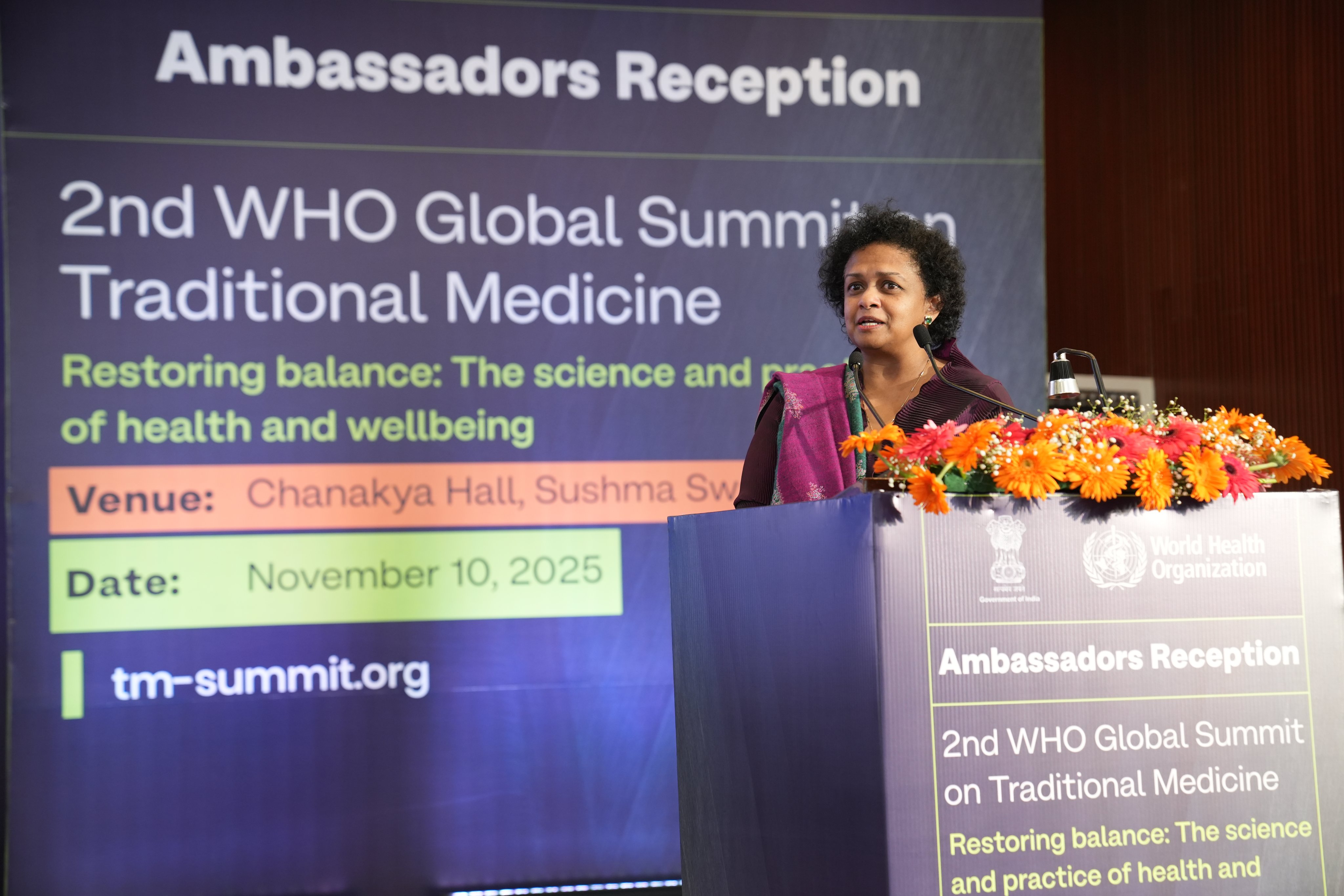
Photo credit: Media & Communication of Ministry of AYUSH, Press Information Bureau, Government of India
WHO, in partnership with the Government of India, convened an Ambassadors' Reception on 10 November 2025 to set the stage for the 2nd WHO Global Summit on Traditional Medicine, scheduled for 17–19 December 2025 in New Delhi.
The high-level leadership event brought together more than 50 Delhi-based ambassadors, high commissioners, and senior diplomatic representatives to discuss the Summit's vision, its relevance to global health, and opportunities for multilateral collaboration in advancing safe, effective, and evidence-informed traditional medicine.
The reception also highlighted the upcoming Minister's Round Table during the Summit, during which countries will share experiences in policy, regulation, and integration of traditional medicine in national health systems. Countries will also have an opportunity to make commitments to advance the goals of the Global Traditional Medicine Strategy, adopted at the Seventy-eighth World Health Assembly in May 2025.
The upcoming Summit underscores WHO's commitment to integrating traditional medicine into health systems in ways that are scientifically validated, quality-assured, and accessible to all. With 170 Member States reporting the use of traditional medicine, WHO recognizes its critical role in achieving Health for All and as an important component of people-centred, holistic care.
The Summit, guided by the WHO Global Traditional Medicine Strategy 2025–2034 , will focus on:
- strengthening global standards and regulatory frameworks
- advancing research and innovation
- ensuring equitable access and quality assurance
- romoting integrative health approaches for people and the planet.
Shri Prataprao Jadhav, Union Minister of State (IC), Ministry of Ayush and Union Minister of State for Ministry of Health & Family Welfare provided a keynote address, saying: "This Summit represents another milestone in our shared pursuit of equitable, accessible, and evidence-based health-care systems across the world... Working closely with WHO and the Global Centre for Traditional Medicine in Jamnagar, we aim to strengthen research, enhance quality and safety standards, and ensure that the benefits of traditional medicine are available to all."
From WHO, Regional Director Emeritus for South-East Asia and Senior Advisor to the WHO Director-General on Traditional Medicine, Dr Poonam Khetrapal Singh, set the context for the discussion, noting that: "The GTMC in Jamnagar and the Traditional Medicine Global Library represent vital steps toward evidence-informed, people-centred, and holistic healthcare for a healthier, more sustainable future."
Dr Shyama Kuruvilla, Director i.a. of WHO's Global Traditional Medicine Centre, outlined the Summit's thematic tracks and priorities, noting its role in fostering international cooperation and knowledge exchange. "The Summit aims to advance a global movement to restore balance for people and the planet, grounded in the science and practice of Traditional Medicine" she said.
WHO calls on Member States to champion high-level participation at the Ministerial Roundtable and to reaffirm their commitment to building inclusive, affordable, and evidence-based health systems that leverage both traditional and modern medicine.






